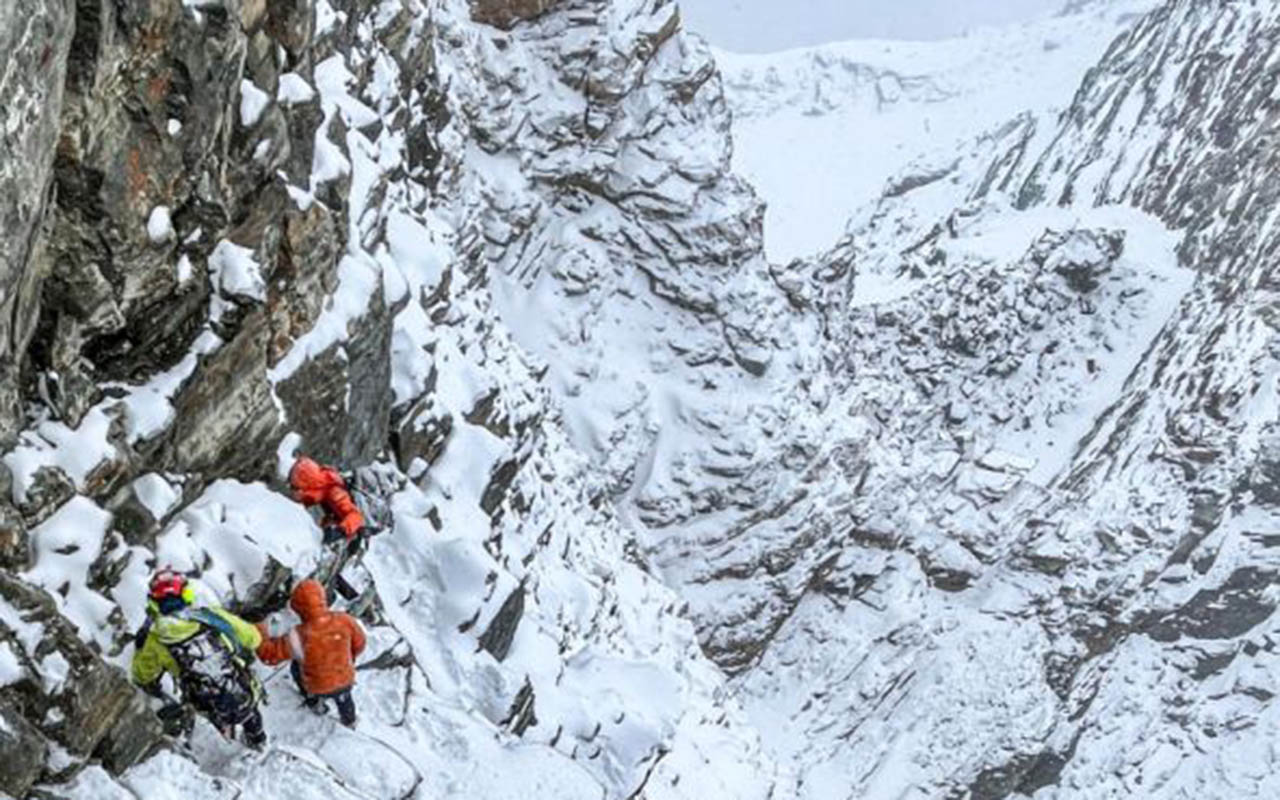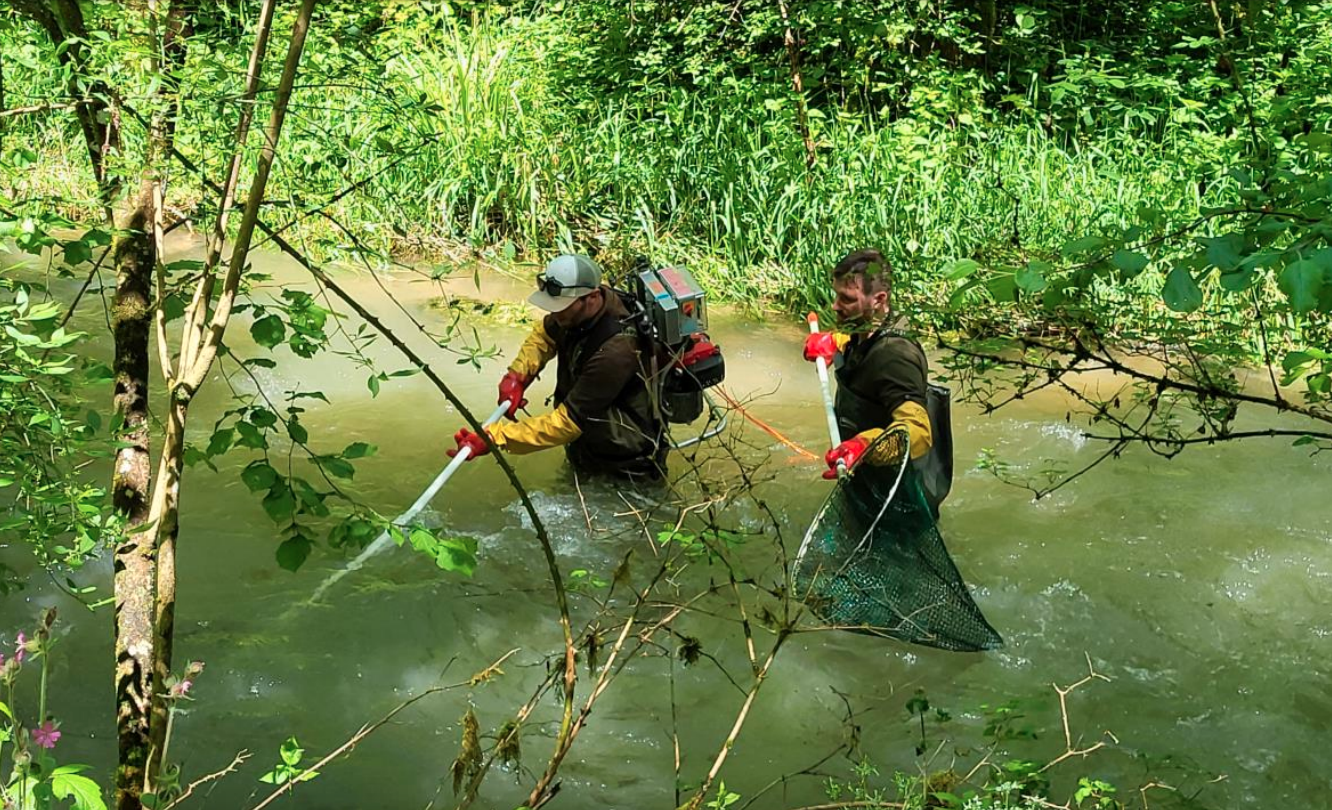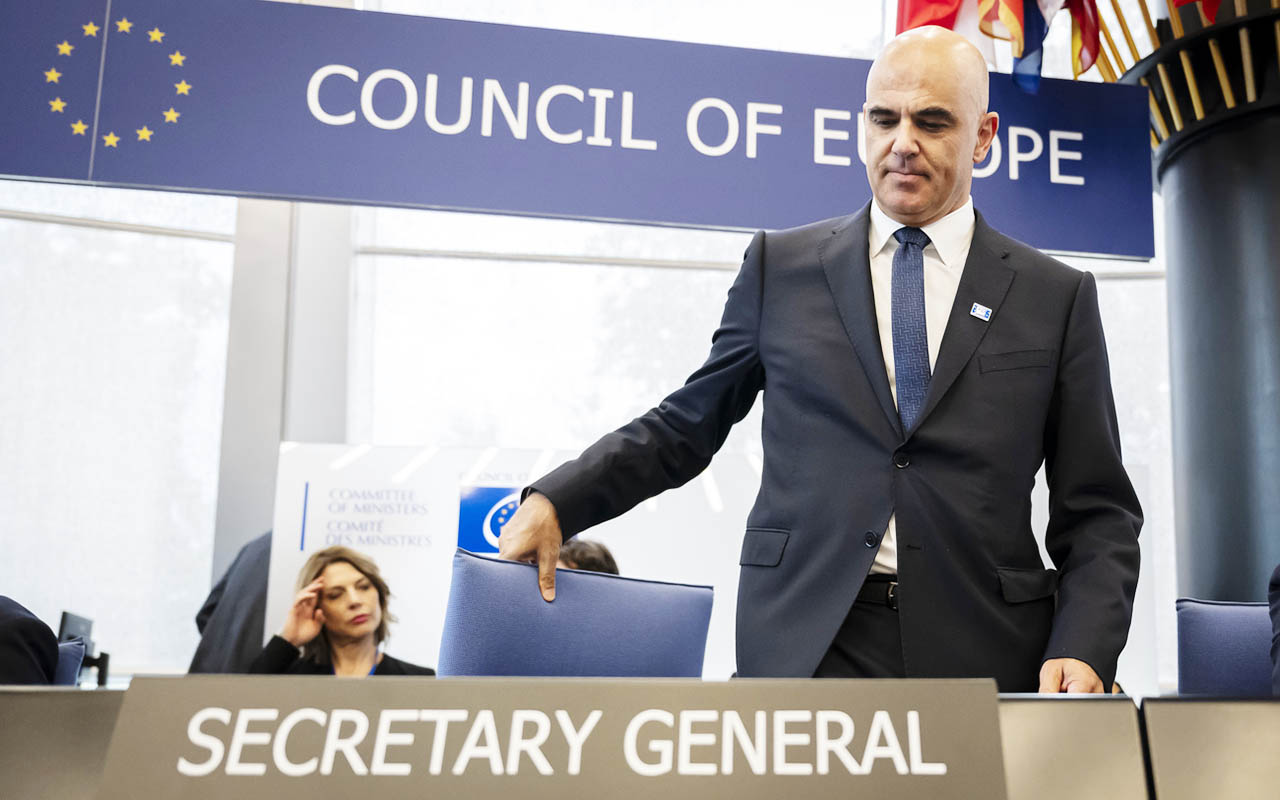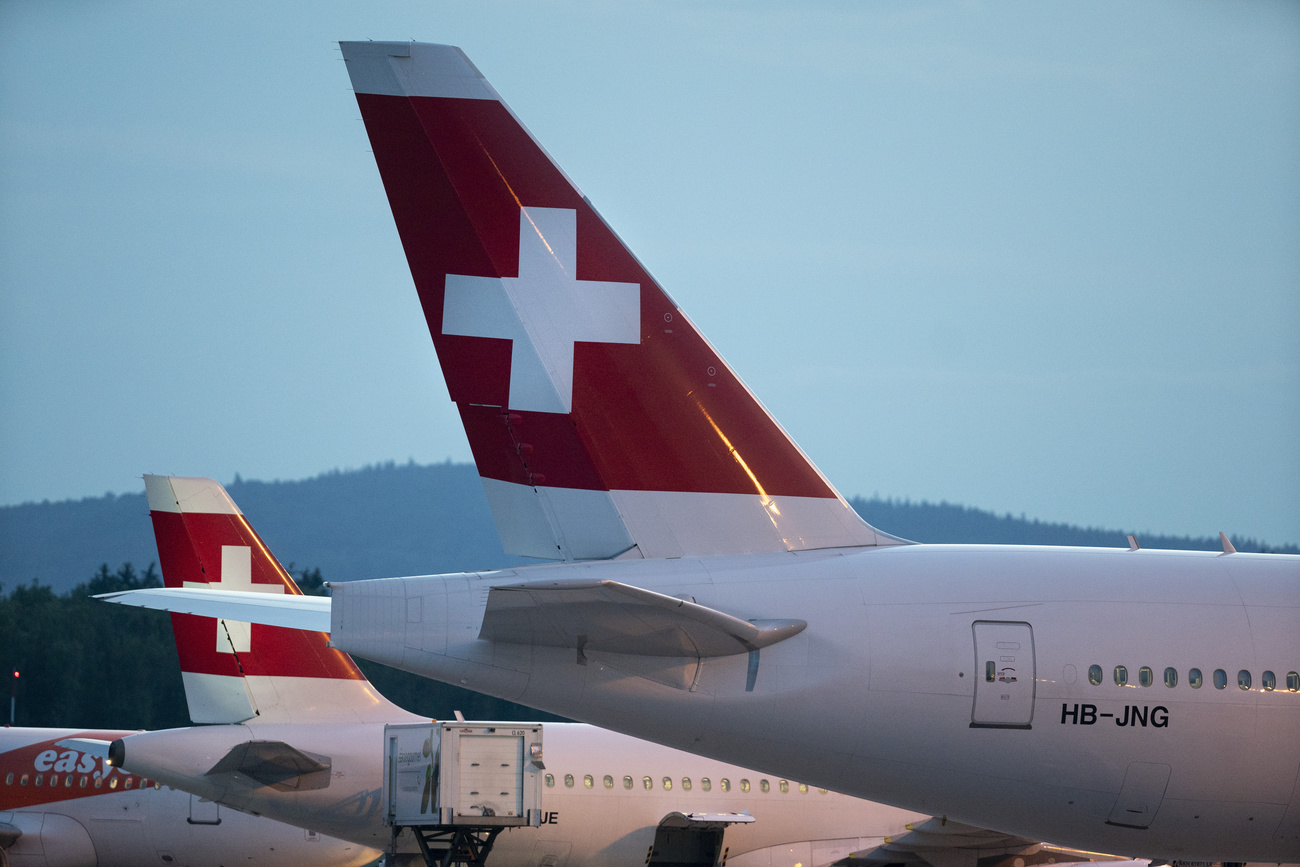

Today in Switzerland
Dear Swiss Abroad,
A spectacular rescue operation on the Matterhorn has made the headlines in Switzerland. The two climbers who were saved got in trouble on the famous peak on Monday: they were poorly equipped for the conditions and unable to cope in a snowstorm at an altitude of 3,500 metres.
Switzerland is also currently analysing its soil and water for substances known as PFAS, or “forever chemicals”, – and frequently finding them.
Happy reading!

Brown trout in Basel have been contaminated with PFAS, persistent synthetic chemicals that accumulate in the environment and the human body. These pollutants are increasingly discovered in Switzerland.
Cantons Basel City and Country have registered high levels of the harmful PFAS in fish from waters in the region. They recommend amateur anglers eat the fish they have caught only once a month.
Once released, PFAS, or forever chemicals, hardly degrade in the environment. They have been used since the 1940s and are popular in many industrial sectors because they are water- and grease-repellent and temperature-resistant.
However, PFAS can reduce the effectiveness of vaccinations and have negative effects on the liver, kidneys or the birth weight of newborn babies.
Excessively high PFAS levels in beef led to a ban on the sale of meat in St Gallen in eastern Switzerland just a month ago. Tests are currently being carried out throughout Switzerland. This comes after the federal government published limit values for PFAS substances in meat, fish and eggs at the beginning of the year.
Fingers are being pointed at sewage sludge: residues from sewage treatment plants were being spread on fields and meadows as fertiliser until 2006.

Many people in Switzerland were delighted when former Swiss cabinet minister Alain Berset took up his new post as secretary general of the Council of Europe. However, a Swiss-based Europe specialist has questioned his influence.
A recent opinion piece by Geneva-based Europe specialist René Schwok takes a tough line on the Council of Europe. No, Switzerland will not gain international influence through the chairmanship of the Council of Europe under Alain Berset, because the institution has been in decline for a long time, without power and without credibility, writes Schwok.
Can Switzerland compensate for its problems with the European Union thanks to Berset’s top job in the Council of Europe? Schwok is sceptical. The organisation is clinically dead. This is because “every state has a right of veto, which prevents progress on important issues. Secondly, the council only has limited resources, he says. And thirdly, the council only has an advisory role.
“In addition, the council suffers from competition from other human rights organisations: the United Nations and the Organisation for Security and Cooperation in Europe (OSCE), which are also ineffective,” he adds.
Berset himself told Swiss public radio, SRF, when he took office: “I believe that Switzerland’s role and the network that it and I personally have can help the Council of Europe quickly gain more visibility and political weight.”
René SchwokExternal link opinion piece in Le Temps in French (paywall).

A dramatic successful rescue on the Matterhorn in southern Switzerland.
On Monday two mountaineers from Vietnam were blocked below the normal Matterhorn route on difficult terrain. Equipped only with light shoes and trainers, they found themselves in difficulty, suffering from severe hypothermia.
Their rescue took 14 hours and was extremely challenging. Rescue specialists had to abseil down to the casualties, then haul them back up the normal route and finally down to a nearby mountain hut on foot.
Air Zermatt press releaseExternal link (in German).

The Swiss signatures scam continues to cause concern: many residents now want to ban the purchase of signatures for initiatives.
Commercial signature collectors allegedly forged signatures on a large scale in Switzerland. A media investigation that uncovered the scam has cast a shadow over Swiss democracy: trust in the usual processes is at stake, and direct democracy has been affected. Now 84% of people who took part in a poll say they want a ban on paid signature collections.
The online survey conducted by the research company Leewas found that almost two-thirds of respondents want the digital collection of signatures, known as e-collecting, in order to increase the security of the process.
Almost nine out of ten respondents are in favour of initiative committees having to disclose from which company and for what sums they have purchased signatures.
Leewas surveyed 19,552 people in Switzerland for the poll.
The Tages-AnzeigerExternal link report.

Swiss International Air Lines (SWISS) hit by new criticism.
The CEO of the luxury brand Bulgari must have lost his temper when he flew with SWISS recently.
“This is one of the most expensive airlines in the world, if not the most expensive. In return, you get average service, old aeroplanes (A340) and poor food,” Jean-Christophe Babin wrote on Linkedin.
Babin drew a comparison with Easy-Jet. He was particularly upset that the airline apparently cancels flights at short notice without offering a replacement. He has since deleted his post following an intervention by SWISS. But it has already been reported in the media and the damage has been done. The airline industry is “the only business in which incompetence is not penalised,” wrote Babin. SWISS recently made negative headlines regarding punctuality
Report on criticism of SWISS in HandelszeitungExternal link (in German).

In compliance with the JTI standards
More: SWI swissinfo.ch certified by the Journalism Trust Initiative






























